Al-Anon
The Story Of Al-Anon
Founded in 1951, Al-Anon is a support organization for the friends and family members of those struggling with an alcohol use disorder (AUD). Lois Wilson, also known as Lois W., founded Al-Anon 16 years after her husband founded Alcoholics Anonymous (AA). Faced with the difficulties of supporting a loved one with an AUD in her own life, she created an organization for people like her.
Al-Anon is an organization self-supported through member donations. Meetings are available to help family members and friends of those with an addiction to cope and better serve their loved ones, even if their loved ones haven’t recovered. The key focus of Al-Anon is to support members by letting them know they aren’t alone in their struggle.
Try Online Therapy
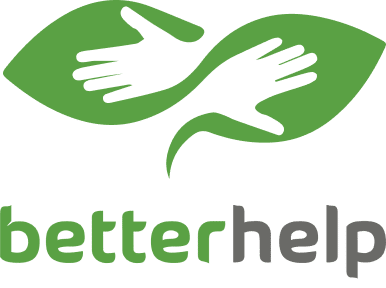
Get professional help from an addiction and mental health counselor from BetterHelp by phone, video, or live-chat.
Take the Quiz. Get Matched. Begin Therapy.
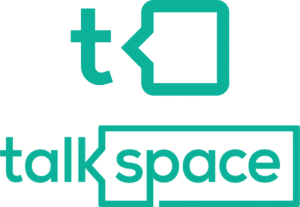
Online therapy can help you with long term addiction support. Connect with a therapist from Talkspace anytime, anywhere.
Get matched with a therapist now.
Paid Advertising. We may receive advertising fees if you follow links to promoted online therapy websites.
Alcoholism As A Family Illness
Al-Anon treats the disease of alcoholism as a family illness, because it has a negative impact on both the drinker and those around them. The friend and family support system is integral to recovery. Some family members blame themselves for their loved one’s drinking or may not understand why recovery isn’t their loved one’s priority. Meetings tackle these issues and help members understand alcoholism as a family illness.
Alateen—Al-Anon Meetings For Teens
Al-Anon also has a specific group called Alateen catered to young people affected by alcoholism in their family. These meetings allow young people to meet with others their own age, making the experiences more relatable and beneficial.
What To Expect From A Meeting
Al-Anon meetings are for anyone who is affected by someone else’s drinking. If you worry about someone’s drinking habit or if their lifestyle affects you personally, Al-Anon can help you.
Some people are hesitant to go to their first meeting because they don’t know what to expect. Some things to remember when considering attending a meeting:
- Most importantly, Al-Anon is anonymous.
- Everyone in each meeting has been affected by alcoholism, whether personally or through a family member.
- No one is required to speak or discuss their problem, although it is encouraged.
- There are different types of meetings. Some may be more productive for you than others.
- Al-Anon is not a religiously based organization.
- Meetings are centered on Al-Anon’s 12 Step program.
Check if my insurance covers rehab
Addiction Center is not affiliated with any insurance.
Al-Anon meetings are conducted under a mantra that allows attendees to “take what they like and leave the rest.” In this manner, meetings focus on sharing experiences and hardships rather than telling attendees what they should do.
The 12 Steps Of Al-Anon
Most meetings start with a reading of Al Anon’s 12-Step program. These steps are adapted, nearly verbatim, from the 12-Step program of Alcoholics Anonymous. Much like AA, Al-Anon members take on a sponsor who helps them work through the steps and who is available for support in times of hardship. The steps are:
- “We admitted we were powerless over alcohol—that our lives had become unmanageable.” —Members learn to accept alcoholism as a disease they cannot control in others.
- “Came to believe that a Power greater than ourselves could restore us to sanity.” —Members often drive themselves to the brink by trying to change or control their loved one. After admitting they are powerless, they learn to accept that they can be brought back to sanity
- “Made a decision to turn our will and our lives over to the care of God as we understood Him.” —Learning to let go is a key step to the program and acceptance.
- “Made a searching and fearless moral inventory of ourselves.” —A huge part of the steps is self-discovery, and this is the beginning of that. Attendees create a list of how they may have wronged themselves or their loved ones (such as with threats).
- “Admitted to God, to ourselves, and to another human being the exact nature of our wrongs.” —This is an examination of each item in the member’s moral inventory, allowing them to delve into each problem.
- “Were entirely ready to have God remove all these defects of character.” —This step is very important, as it is the full acceptance of the recovery process supported by a Higher Power.
- “Humbly asked Him to remove our shortcomings.” —This part of the 12 Steps helps members understand how they may have been controlling or judgmental toward an addict and how that is counterproductive.
- “Made a list of all persons we had harmed, and became willing to make amends to them all.” —Oftentimes, making amends starts with yourself. Many people blame themselves for their loved one’s addiction. They must be willing to forgive themselves and make amends.
- “Made direct amends to such people wherever possible, except when to do so would injure them or others.” —After you are willing to make amends, the next step is to take action.
- “Continued to take personal inventory and when we were wrong promptly admitted it.” —Going through the 12 Steps is a process that takes time. Although members have already made an inventory, slipping up is normal. Step 10 recognizes this is an ongoing process.
- “Sought through prayer and meditation to improve our conscious contact with God as we understood Him, praying only for knowledge of His will for us and the power to carry that out.” —This is a personal, spiritual step that encompasses acceptance and comfort amid the stress of recovery.
- “Having had a spiritual awakening as the result of these steps, we tried to carry this message to others, and to practice these principles in all our affairs.” —The last step is a realization that the member’s journey is not over. Members are then encouraged to support other members with what they’ve learned.
Looking for a place to start?
Join the thousands of people that have called a treatment provider for rehab information.
Free and confidential
Available 24/7
Access to professional treatment
Understanding The “Higher Power”
Although Al-Anon is not a religious program, members do have an acceptance of a higher power. However, the term “higher power” is open to interpretation of one’s own personal beliefs. Al-Anon accepts members of all religions and beliefs, and no one is forced to alter their beliefs.
The Benefits Of Al-Anon Group
Al-Anon members benefit by being introduced to people who can relate to having a loved one with an AUD. Although everyone is different, Al-Anon members have all had similar experiences in their struggles. The key benefit of Al-Anon is being able to speak with others have these similar experiences. There are Al-Anon meetings all across the nation.
For information on other treatment options, contact a treatment provider today.
Try Online Therapy

Get professional help from an addiction and mental health counselor from BetterHelp by phone, video, or live-chat.
Take the Quiz. Get Matched. Begin Therapy.

Online therapy can help you with long term addiction support. Connect with a therapist from Talkspace anytime, anywhere.
Get matched with a therapist now.
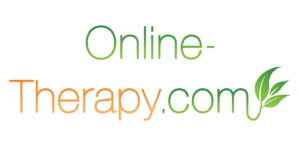
Begin making positive changes with Online-Therapy.com. Quality online therapy, from the comfort of home.
Answer a few questions to get started.
Paid Advertising. We may receive advertising fees if you follow links to promoted online therapy websites.
Published:
Author
Jeffrey Juergens

-
Jeffrey Juergens earned his Bachelor’s and Juris Doctor from the University of Florida. Jeffrey’s desire to help others led him to focus on economic and social development and policy making. After graduation, he decided to pursue his passion of writing and editing. Jeffrey’s mission is to educate and inform the public on addiction issues and help those in need of treatment find the best option for them.
- More from Jeffrey Juergens
Reviewed by Certified Addiction Professional:
David Hampton

A survivor of addiction himself, David Hampton is a Certified Professional Recovery Coach (CPRC) and a member of the National Association of Alcohol and Drug Abuse Counselors (NAADAC).
- More from David Hampton
Sources


Recovery Starts Today
Call Now For Addiction Support
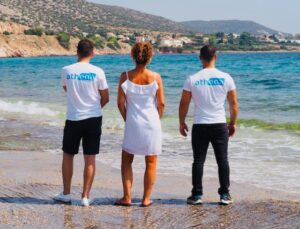





Tarzana Recovery Center – TRC
Tarzana , CA
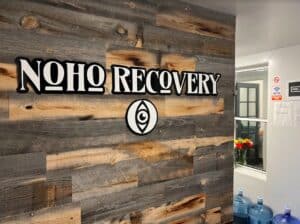

Hollywood Hills Recovery
Los Angelos , CA

Gratitude Lodge Drug & Alcohol Rehab
Long Beach , CA
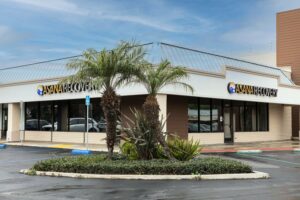
Asana Recovery – Outpatient Treatment Center
Fountain Valley , CA

The District Recovery Community
Huntington Beach , CA
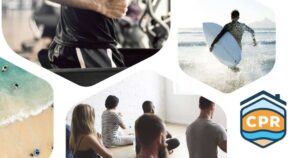
California Prime Recovery
Fountain Valley , CA

The Nestled Recovery Center
Las Vegas , NV


Gratitude Lodge – Drug & Alcohol Detox
Newport Beach , CA
